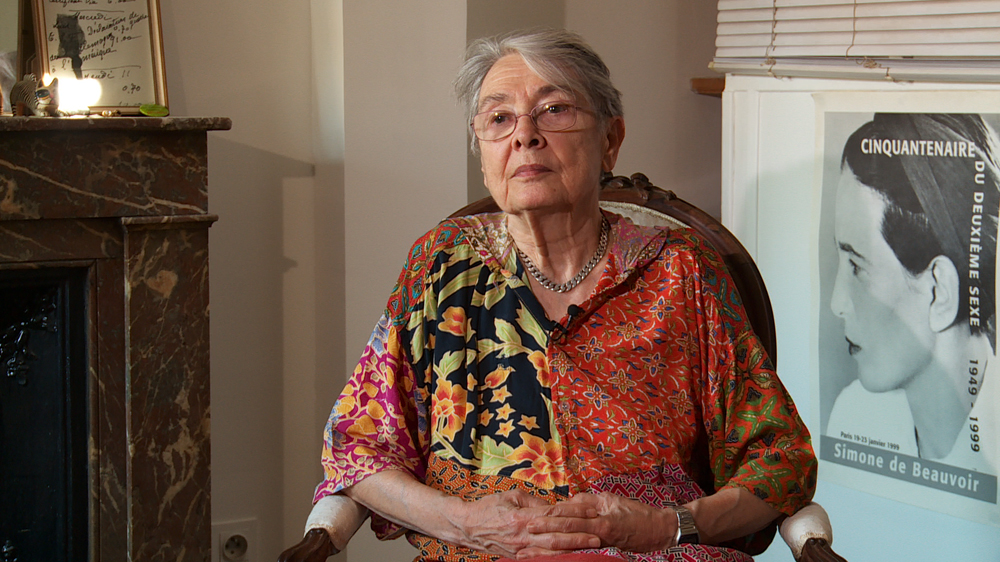Home » World News »
Protests and politics 50 years on from student uprising
Fifty years since the May 1968 student uprising, Al Jazeera explores the movement’s legacy for protesters today.
French police cracked down on violent protests in Paris, echoing scenes that played out half a century ago during the country’s 1968 uprising.
More than 1,000 demonstrators – some of whom hurled projectiles at police, torched vehicles, and set a McDonald’s ablaze – took to the streets of the capital on Tuesday in advance of an International Workers’ Day rally.
The events in Paris, which saw police use water canon and tear gas in response, were not the only demonstrations to take place in France, however.
Throughout the country, public-sector workers and students marched against French President Emmanuel Macron’s plans to reform the country’s economy and higher education system.
More than 20,000 people were estimated to have been involved, according to police.
‘Spring of discontent’
But the so-called “spring of discontent”, which has seen protests including student sit-ins and train strikes take place, has also evoked memories of an anti-government movement that erupted 50 years ago this month.
In May 1968, students and workers rose up against the conservatism of General Charles de Gaulle’s government, culminating in an estimated 10 million workers downing tools during labour strikes that threatened to wreak havoc on the French economy.
Half a century on, the movement – which briefly threatened to collapse the status quo before parliamentary elections a month later resulted in a landslide win for de Gaulle – continues to infuse the spirit of protest in France and elsewhere today, Biba Pavard, author of Mai ’68: The Second French Revolution, told Al Jazeera.
“That’s why I prefer to talk about ’68 as many years in one. It had started before and lasted for a long time,” Pavard said.
“And neither was it an exclusively French movement. If uprisings were happening in places such as Africa, South America, and, of course, the United States it was because ideas were circulating, writings were being translated, and movements shared common references like Che Guevara or Mao. These influences live on today.”
1968 uprising
But whereas recent anti-government protests in France have appeared to be focused on economic and educational grievances, mass involvement in the uprising of 1968 was largely sparked by police using a heavy-handed approach against student protesters at Paris’ Sorbonne University throughout early May.
On the evening of May 10, having evacuated students from the university one week earlier on account of clashes between the student body and authorities, riot police acting under government orders assaulted student barricades surrounding the campus in Paris’ Latin Quarter.
The action, supposedly taken in a bid to clear the roads for traffic, prompted many to express solidarity with the protesters.
For Christine Delphy, now 77, it was moments such as these, of seemingly overzealous policing, that pushed her into the protest movement.
“I did not feel concerned at the beginning,” Delphy, who was a sociology researcher during the spring of 1968, told Al Jazeera.
“But one day, as I was crossing the Saint-Sulpice square trying to find shelter from the riots, I saw a group of policemen hitting the roof of a car, spitting their rage like mad dogs even if there was a family with kids inside. From that moment on, I started to participate in every single demonstration. I still do it as much as I can.”
Old approach, or new movement?
In addition to those whose involvement in protests has carried forward from 1968 onwards, the sight of students and workers uniting in protest on the streets of France in recent days has, in appearance at least, drawn parallels between the events of half a century ago and today.
For Pavard, the coming together of those in education and those in employment to lay down tools and books in favour of debate and demonstration harks back to a driving factor of the May uprising 50 years ago.
“People stopped working so they had time to think,” Pavard said.
“Students, artists and workers were sharing their ideas and discovering how much common ground their demands had beyond specific points like the rise of salaries or the freedom of jailed protesters. They were questioning the very structure of power.”
Not everyone, however, is content with the ongoing comparison between past and the present.
Heloise Starroz, a first-year student at the Sorbonne, told Al Jazeera the legacy of those protesting in 1968 is not reform, but failure.
“We are fed up with these parallels. We want to think that our movement has its own spirit,” Starroz said.
“And overall, we can’t forget that many of the May 1968 supporters let their utopia die to go on their summer vacations.”
Source: Read Full Article



